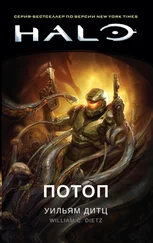“Really,” Allston replied. “It seems safe to assume that if a more senior official had survived, he or she would have come forward by now.”
That led to a spirited discussion, in which Besom took the role of cynic. “We need a new president, that’s for sure,” he said. “But how do we know this man is who he claims to be?” Besom turned to Sloan. “No offense… But have you got a driver’s license or something?”
“I was in Mexico when the meteorites struck,” Sloan said. “And I lost my ID during the trip north.”
“How unfortunate,” Besom said.
“I suggest that you take a look at this,” Allston said, as he removed a piece of paper from a coat pocket. There was a rustling noise as he held it up for people to look at. Jenkins made the article readable by aiming a flashlight at it. Then he read the headline out loud. “‘New Secretary of Energy Sworn In.’”
“That’s where I saw him!” Rostov exclaimed. “On TV! Testifying in front of Congress.”
All eyes turned to Sloan. McKinney was the first to speak. “Congratulations, Mr. President. The job won’t be easy.”
Sloan felt the full weight of the presidency settle onto his shoulders. “Thank you… And no, it won’t. The people down south have a big head start.”
“That’s for sure,” Jenkins agreed. “Take the defense towers for example. Once they’re complete, a curtain of steel will divide North from South.”
Sloan frowned. “Defense towers? Tell me more.”
So Jenkins told him. The rebels were building what amounted to a high-tech Maginot Line that was going to run east–west between the northwest corner of Texas and Norfolk, Virginia. And according to patriot sympathizers who were working on the project, the towers would be connected by fiber-optic cable, topped with landing pads for helicopters, and armed with missile batteries. The idea being to wall the South off from what the New Order stalwarts called “the takers.”
“But there’s more to it than that,” Jenkins added. “According to the New Order’s propaganda machine, the profligate Yankees will run out of fuel soon. And once they do, their cities will go dark. That’s when the barbarian horde will head south in an effort to seize control of the so-called Confederacy’s oil reserves. Except they aren’t the Confederacy’s oil reserves, they’re our oil reserves since they belong to all of us.”
Sloan felt something heavy land in the pit of his stomach. Of course! He should have thought of it. Would have thought of it if he hadn’t been so busy struggling to survive. The Strategic Petroleum Reserve fell under him . Or it had in his role as Secretary of Energy. And the last time he’d seen a report, there’d been something like 700 million barrels of oil stored in five locations, all of which were located down south! That equated to roughly forty days’ worth of oil for the predisaster United States. Of course, that period of time could be greatly extended through conservation measures and by dividing the country in half!
Especially since the Southern states were producing energy using a variety of technologies including solar and wind. In fact, despite its reputation for relying too heavily on an oil-based economy, Texas was producing a lot of energy via wind and solar. So much so that they might be able to get along without the petroleum reserves as long as they didn’t have to share with the North. What did that imply? Were Huxton and his cronies planning to keep some of the oil for emergencies and sell the rest? Taking the money for themselves? Sloan wouldn’t put it past them. “I want to see one of the defense towers firsthand,” he said. “And I need to go north.”
McKinney nodded. “Yes, sir… We’ll leave first thing in the morning.” The war had begun.
CHAPTER 7

The mercenary captains are either capable men or they are not; if they are, you cannot trust them, because they always aspire to their own greatness, either by oppressing you, who are their master, or others contrary to your intentions; but if the captain is not skillful, you are ruined in the usual way.
—NICCOLÒ MACHIAVELLI
BOISE, IDAHO
Mac was standing in the Stryker’s air-guard hatch looking back as the convoy rounded a curve. The column consisted of a Ford pickup with a fifty in back, the Humvee with the UAV launcher in tow, a Stryker, two fuelers, a six-by-six loaded with dependents, a moving van carrying their possessions, a second Stryker, a fueler filled with JP8, a U-Haul loaded with supplies, a second armed pickup, and another U-Haul. A Stryker brought up the rear. Each vehicle had a number, a radio, and two qualified drivers. Radio procedure wasn’t perfect, but it was improving, and Mac figured the entire group would have it down before long.
The unit was just north of Boise. Why? Because the city was on the way to Arizona, that’s why… Although Mac had a secondary motivation, which was to visit the family farm even if that wasn’t fair to the others since they couldn’t direct the column to their homes.
The Macintyres hadn’t lived there full-time. Not during Mac’s lifetime. But her father had been raised on the farm and kept the place after his mother’s death. Most of the land had been sold off by the time he inherited it. But ten acres remained, including the four-bedroom farmhouse that sat perched on a rise. And that’s where most of Mac’s summer vacations were spent.
Her father hadn’t been there much. That bothered her sister but was fine with Mac, who came to dread his unannounced visits. Bo Macintyre liked to sponsor competitions. There were shooting contests, family fishing derbies, and long-distance runs. And, since Victoria won most of them, Mac grew tired of competing. Not just for whatever silly prize her father offered, but for his affection.
Nothing was said. Colonel, and then General , Macintyre was too disciplined for that. But everyone knew. Victoria was his favorite. So Mac formed a close bond with her mother. And that had a downside because Margaret Macintyre had grown tired of military life, and longed for stability. That put pressure on her marriage to Bo. The result was a chasm, with Victoria and her father on one side—and Mac and her mother on the other.
Yet Mac still cared about her father, and her sister, too, for that matter. So if one or both of them were at the farm, she wanted to stop by. Even if it meant granting herself a privilege not available to others. Mac’s thoughts were interrupted by a voice in her ear. “Roller-One to Roller-Six.”
“Roller” was the name Mac had given to the convoy—and “One” was the number assigned to the first vehicle in the column. It was an armed pickup driven by Corporal Garcia. “This is Six actual,” Mac said. “Go. Over.”
“There’s a roadblock up ahead and no obvious way around it. Over.”
“Roger that,” Mac replied. “Hit the brakes. Six to all Roller units… Pull over, but keep your eyes peeled and your engines running. I’m going forward. Over.”
Mac was riding in the Stryker designated as Roller-Three. It pulled out and around the Humvee before coming to a stop next to the pickup. Mac climbed up on top of the Stryker to get a better view. A large construction site was visible in the distance, and her binoculars brought everything closer. Lots of heavy equipment could be seen. What were the locals doing? Working on a highway? No, they were building a wall! A defensive wall, like the ones used to protect ancient cities. Had they been attacked? Or were they preparing for the possibility of an attack?
Читать дальше
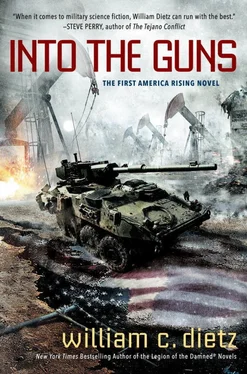

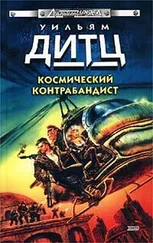
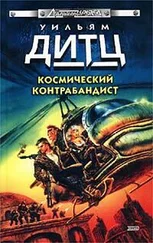
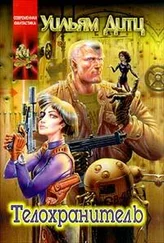
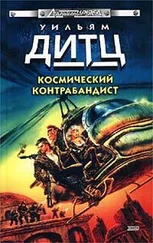
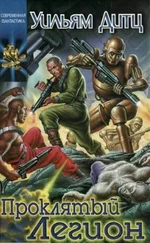
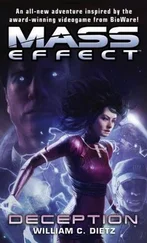

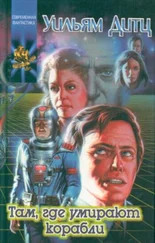
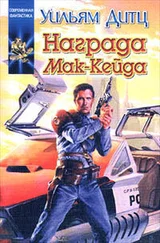
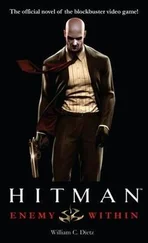
![Уильям Дитц - Избранные произведения в одном томе [Компиляция]](/books/389750/uilyam-ditc-izbrannye-proizvedeniya-v-odnom-tome-k-thumb.webp)
